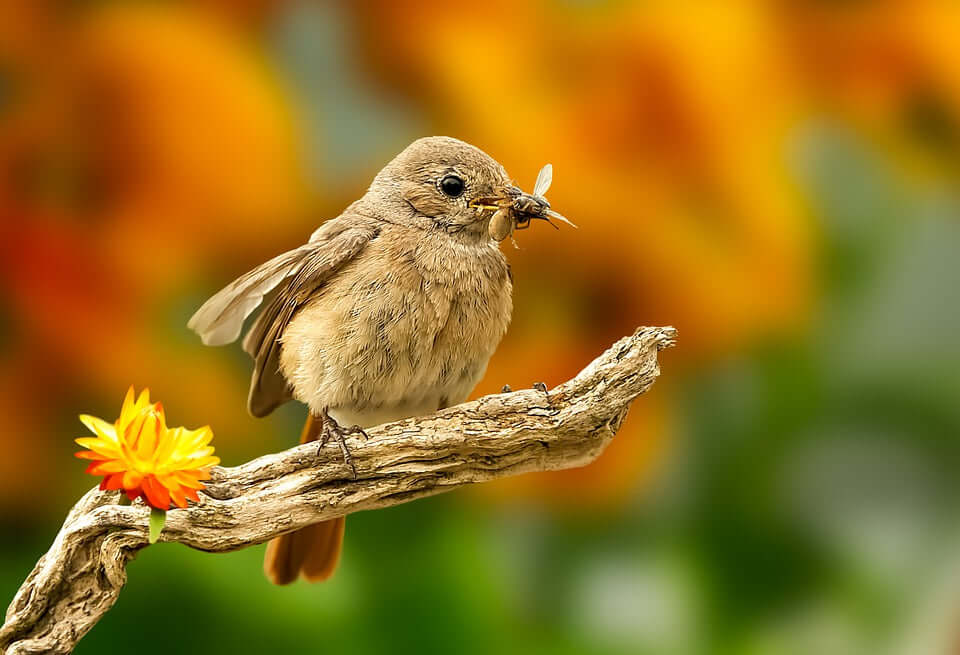
Spider catcher
Share
Spiders – you either love them or loathe them or possibly just tolerate them. Whichever category you fall in you’re bound to come across them whether it’s while you’re gardening or pottering around at home.
We don’t sell the spider/bug catcher, long handled device, you may be looking for but what we do sell is bird seed. Which, in turn, helps to feed the best spider catcher there is – garden birds.
A massive amount of garden birds will eat insects and invertebrates as a major part of their diet.
Garden birds such as swallows, blackbirds, blue tits, robins, thrushes, and woodpeckers get through many insects, including spiders, and can consume more than 400 million of them each year.

Most garden birds are omnivores, which means they will eat both plants and insects, to survive. Granivorous birds, like pigeons, ducks, and swans, will eat insects and spiders accidentally just along with their other food.
Spiders and insects provide birds with essential nourishment and protein. Protein is very important for growing baby birds which is why, in spring and summer, you will see adult birds searching high and low for insects and invertebrates to feed their chicks.
If you’ve ever wondered how birds catch insects and spiders, then different bird species have developed different ways of catching their prey.
Swallows and swifts, for instance, eat as they fly and feed on flying insects. Ground feeders like blackbirds love worms and can often be seen rummaging through leaves or listening carefully for insect movement underground.
The very acrobatic blue tit is not just performing for our benefit but is rather inspecting a tree for insects. The blue tit can spend up to thirty minutes searching at every angle for its meal.
Many people assume that when hearing a woodpecker, they are drilling a bark for food. This drumming noise is in fact a communication between woodpeckers of either a mating call or a territorial warning. When woodpeckers do eat it’s usually a quiet affair, but they do use their beaks to dig out beetles and spiders and drink the sap from trees.
You may wonder what happens to insectivorous birds during the winter months. Insects and flying insects become scarce so strictly insectivorous birds follow the food and migrate to warmer climates.
Other garden birds like robins and blackbirds do stay with us but alter their diet to suit the season. As most insects, in the UK, do disappear during colder weather then these birds turn to seeds and berries. However, insect larvae and eggs are still present in the ground and in leaf mulch but are hard for a bird to find.
The one single thing we can do to help garden birds is to feed them all year round.

Mealworms are full of protein and are the closest thing to their natural food that we can put out for garden birds that eat both insects and seeds.
A good seed mix such as Premium Wild Bird Food or Huskfree Advance will provide nutrition and suet products like Coco Fat Feeders or Suet Nuggets will offer essential fats.
Although the keen gardeners amongst you may not want to, but by attracting insects to your garden this will then help in your pest control. Bees, ladybirds, and butterflies will eat the insects that you think of as a pest. And of course, garden birds will help with your pest control too.
A plethora of insects and spiders in your garden will encourage birds to feed and nest there. Our suggestions would be to build a wildlife pond, plant native bushes and shrubs, absolutely ditch the pesticides and best of all get messy in the garden! Try not to mow your lawn too often and leave any weeds and decaying plants as these are a magnet for insects.
Written by Angela.

